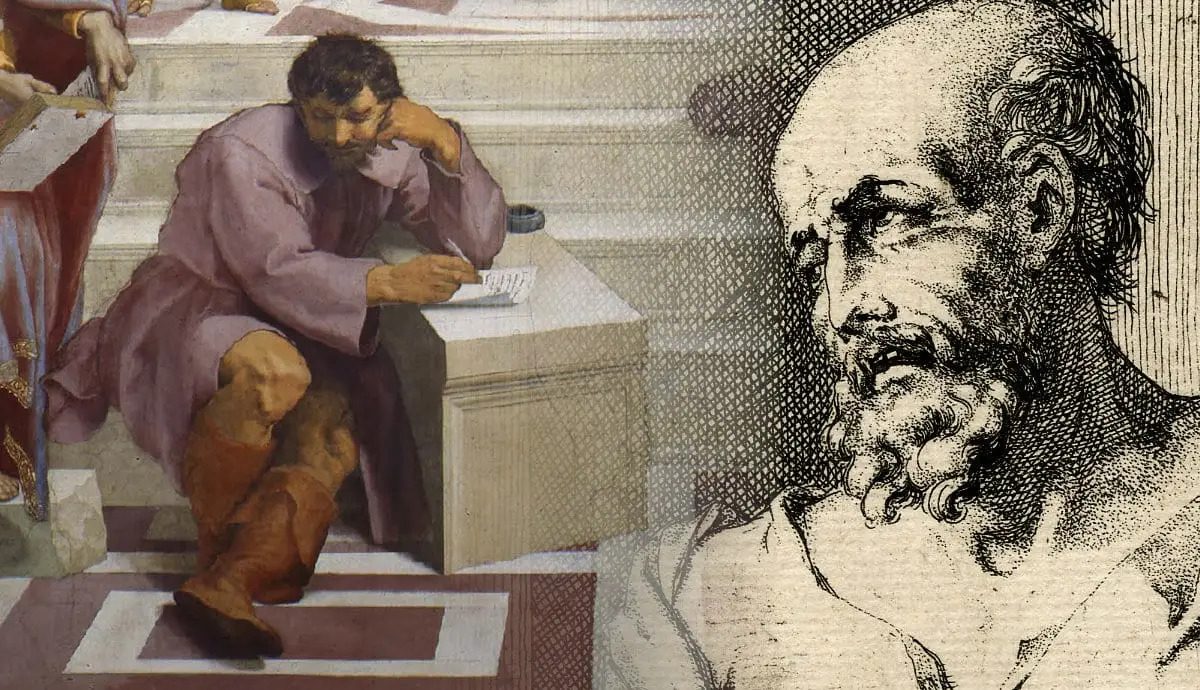
Heraclitus of Ephesus was a pre-Socratic Greek philosopher who resided in the ancient city of Ephesus, a prosperous city in what is modern-day Turkey, around 500 BCE. Known for his enigmatic and paradoxical sayings, Heraclitus’s philosophy revolves around the concepts of change, unity in diversity, and the underlying law or logos governing the universe. Although his work survives only in fragments, Heraclitus’s philosophical insights have had a lasting impact on Western thought.
1. Philosophy of Change
Heraclitus is perhaps most famous for his doctrine of change, encapsulated in his statement, “Everything flows, nothing stands still.” For Heraclitus, the universe is in a constant state of flux, with entities transforming into their opposites. This perpetual change is evident in the natural world, where day turns to night, life begets death, and fire consumes wood to produce ash.
2. The Unity of Opposites
Heraclitus also propounded the unity of opposites, asserting that seemingly contradictory forces are interconnected and interdependent. He believed that strife and conflict are inherent in the structure of the cosmos and are necessary for the harmonious balance of the universe. His sayings, like “strife is justice” and “war is the father of all,” reveal his profound understanding of the dialectical relationship between opposing entities.
3. Logos: The Governing Principle
Central to Heraclitus’s philosophy is the concept of the logos, an underlying principle or law governing the cosmos. The logos is a rational order or reason that permeates the universe, orchestrating the transformations and oppositions in the world. Heraclitus suggested that, although the logos is common to all, most people live as though they have their private understanding, oblivious to the universal law shaping their existence.
4. The Obscurity and Solitude of Heraclitus
Heraclitus earned the epithet “The Obscure” due to the cryptic and aphoristic nature of his writings. He often expressed his thoughts in riddles and paradoxes, challenging his readers to delve deeper into the meaning of his words. His solitary and contemplative life has been depicted in various accounts, emphasizing his detachment from the mundane and his incessant quest for wisdom.
5. Impact on Subsequent Thought
Heraclitus’s philosophical ideas have resonated throughout the history of Western philosophy, influencing philosophers such as Plato and Aristotle and reverberating in the dialectical approach of Hegel. His emphasis on change and the transient nature of the world has shaped discussions on ontology and metaphysics, and his conception of the logos has impacted theological and philosophical discourses on the divine and the rational order of the universe.
6. Exploring Ephesus: Tracing the Footsteps of Heraclitus
Visitors to Ephesus have the unique opportunity to explore the city that was once the abode of this enigmatic philosopher. Walking through the ancient ruins, one can contemplate the remnants of a civilization where Heraclitus pondered the mysteries of existence, inviting travelers to reflect on the universal truths concealed in his cryptic words.
Conclusion: The Enigma of Heraclitus
Heraclitus of Ephesus remains one of the most enigmatic and profound figures in the history of philosophy. His musings on change, the unity of opposites, and the logos invite us to contemplate the dynamic and harmonious nature of the universe and the underlying order governing the seemingly chaotic world. The ruins of Ephesus serve as a silent witness to the life and thoughts of Heraclitus, beckoning us to explore the depth of his philosophy and the mysteries of existence.
By traversing the paths once tread by this obscure philosopher, modern seekers can glean insights into the enduring questions of life and the cosmos, reflecting on the fluidity of existence and the timeless wisdom of Heraclitus of Ephesus.
